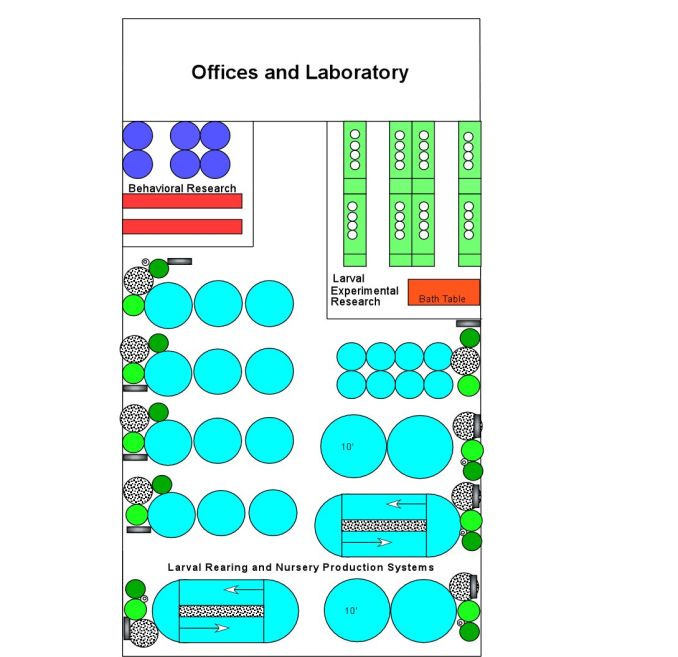Building Diagram
 |
Marine Hatchery and
Nursery Production Facilities As the fish grow, they are moved to either the larger 10 foot nursery/growout tanks or to a nursery/growout raceway. These tanks provide expanded growing space for larger numbers and sizes of fish. Fish that are produced for stock enhancement research are provided to Mote’s Center for Fisheries Enhancement when they are approximately 5-6 inches (12.7-15.24 cm) in length. These fish are then tagged and used for stock enhancement studies. Growout research is continued with fish that are produced for food. |
| Marine Larval Experimental Research The Marine Hatchery and Nursery building also includes both larval production systems and larval experimental systems. The Larval Experiment Research Laboratory is located in a separate room in the hatchery and contains small tanks (26.4 gallons or 100 liters per tank) and associated filtration systems for replicated experimental trials. Marine
Behavioral Research |

